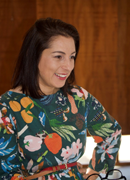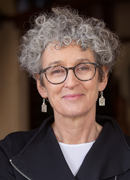
James O. Pawelski Positive Catalyst Award
The James O. Pawelski Positive Catalyst Award is presented to an IPPA member who:
- Advances change for the Association
- Has committed their service to IPPA for a sustained period of time
- Has mobilized and catalyzed others to contribute to IPPA
- Has Helpted to build and contribute to the IPPA community
- Can show concrete outcomes and impact for the Association based on their efforts
Liz Corcoran
Impact Performance Group
She has been a member of IPPA for over 10 years. Liz has attended five World Congresses. She has served as a World Congress volunteer.
More
Liz is also an active member of Association of Training and Development(ATD). She holds a Bachelor’s of Science in Marketing from Boston College and a Masters of Business Administration from New York University in Finance and Accounting. She resides in Wellesley, Massachusetts with her husband, Joe, and her three children. Her son Connor is an IPPA member.



















